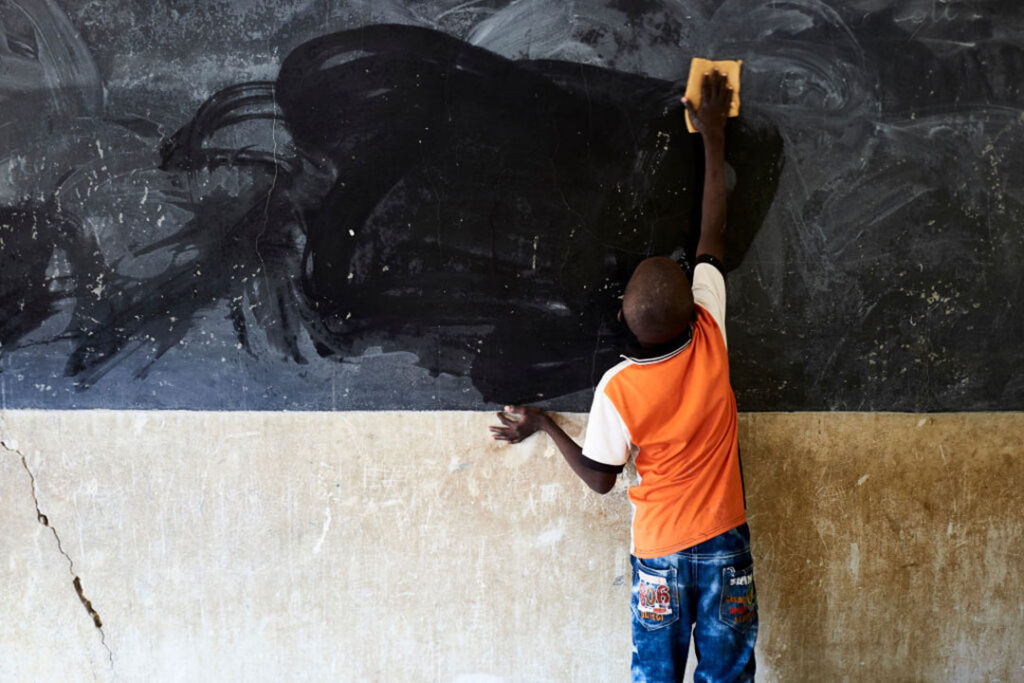ADF STAFF
Dozens of countries and nongovernmental organizations came together in a virtual humanitarian event on October 20 to raise awareness and relief funds for Africa’s crisis-plagued central Sahel region.
One of the most significant long-term threats is to children.
The onset of COVID-19 magnified the existing catastrophe, closing all of the schools that weren’t already shuttered by armed conflicts throughout the region.
“As we speak, 7.2 million children are in urgent need of humanitarian assistance — up from 4.3 million just last year — in Burkina Faso, Mali and Niger,” UNICEF Executive Director Henrietta Fore said at the Ministerial Roundtable co-hosted by the United Nations, Germany, Denmark and the European Union.
“These countries are plagued by a toxic brew of instability, armed violence, extreme poverty, hunger and now, COVID-19, putting the future of an entire generation of children and young people at risk.”
The numbers are shocking.
Nearly 13 million children across the region missed as much as four months of school because of COVID-19, according to research published by the Norwegian Refugee Council (NRC). The breakdown is 5.1 million students in Burkina Faso, 3.8 million children in Mali and 3.8 million in Niger.
“Children are in the midst of a dual health and security threat in the central Sahel,” Maureen Magee, regional director for NRC in Central and West Africa, said in a statement. “All the 40,000 schools in the region were forced to close because of the pandemic, pushing students from preschool to secondary levels out of class in an area where access to education is often already hampered by growing insecurity, repeated displacement and poverty.”
More than 20 million children are currently out of school, more than double since the pandemic began, Fore said, calling for more remote learning and digital options.
“Help us scale up innovative, quality learning for every child,” she said, “with a special emphasis on refugees, migrants, displaced children and girls.”
Aid organization Save the Children lamented how the pandemic deeply affects learning and safety, warning that children out of school are more likely to be victims of early marriage, abuse, child labor, kidnapping, and violent conflict and recruitment.
“COVID-19 is squeezing an already vulnerable population,” said Mateo Caprotti, West and Central Africa program director for Save the Children. “Millions of families across West Africa are being forced to make difficult decisions about buying food or paying for health care or education, as they can no longer afford them all.”
Appealing to the international community for $2.4 billion in emergency assistance, U.N. Secretary-General Antonio Guterres opened the humanitarian roundtable with a video message.
“We need to reverse this downward spiral,” he said.
By the end of the event, 24 governments and institutional donors had pledged more than $1.7 billion: $996.8 million for 2020 and $725.4 million for 2021 and beyond. The funding will support roughly 10 million people with nutrition and food, health services, water and sanitation, shelter, education, and protection.
As helpful as that aid is, the amount fell $700 million short of the roundtable’s goal, and the needs will only continue growing.
“With a population of more than 30 million young people and an average age of 17, this is a children’s crisis,” Eric Hazard, Save the Children’s Pan Africa policy director, said in a statement. “Already before the COVID-19 pandemic, 8 million children were out of school due to violence and insecurity. Children in the region are demanding a stronger and more significant focus on their education.
“We must prioritize the education and protection of children.”

